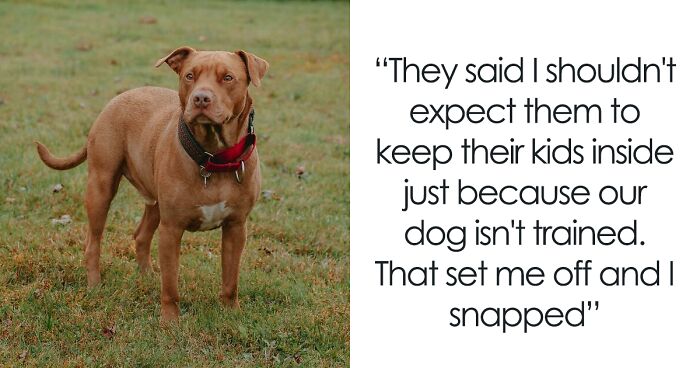
Entitled Woman Expects Neighbors To Keep Their Kids Inside So Her Dog Can Run Around Freely
Dog socialization benefits not only the animal and its owner but everyone around them as well. As the dog learns to respect boundaries and behave properly in various situations, other animals and people will be way more comfortable and at ease around it.
Ignore this important aspect of dog training, and social encounters can become less and less manageable with each interaction.
Three days ago, Reddit user u/InTheHeightsObsessed asked the “Am I The A-Hole” community if it was wrong of her to ask her neighbors to keep their kids indoors at certain times throughout the day. You know, because her dog “barks incessantly whenever they’re in the yard at the same time.”
Image credits: Unsplash (not the actual photo)
Before we all jump to the comment section, let’s talk about dog socialization more specifically. New York City-based dog trainer and pet expert Andrea Arden says it is a critical part of raising a healthy dog.
“Dogs that have the benefit of adequate early socialization (starting as young as 8 weeks of age), are more likely to live a less stressful life because they are comfortable in different environments and around different people and other animals, the author of Barron’s Dog Training Bible and Dog-Friendly Dog Training told Bored Panda. “The dog’s family also benefits from a well-socialized dog because they are generally easier to live with. Keep in mind that socialization does not mean a dog won’t react to certain people, dogs, or environments. Every dog has a different temperament that is genetically predisposed and the goal of socialization is to help a dog become the best version of themselves, not to make them tolerant of everything.”
Arden highlighted that a “thoughtful socialization protocol includes exposure to environments outside of the home for short periods of time where the dog has the opportunity to meet people who are calm and to get rewards during these interactions to best ensure a positive association.”
The pet trainer said socialization with other dogs is also advised so as to prevent fear and/or aggression issues later on in life. “For puppies, socialization may include attendance at trainer moderated playgroups geared specifically to dogs between 8-20 weeks of age. For adult dogs, it is generally advised to organize smaller socialization opportunities such as the dog meeting one or two friendly dogs at a time so as not to be overwhelmed.”
Nigel Reed, a dog behaviorist and author from London, UK, added that “it is imperative that the experiences are positive and may need the owners to intervene if a dog is being a bully or being bullied to prevent future problems.”
“It’s never too late to socialize a dog, however, the earlier you start the easier it is,” Reed, who is also known as The Dog Guardian, explained. “This is because puppies are more playful, they are less likely to have suffered any perceived negative experiences and so are generally less suspicious of potential threats (other dogs) … If you miss the ideal socialization window for puppies, [the process] becomes harder … but never believe it is impossible. Even extreme fear or aggression towards other dogs can be rectified over time with the correct strategy.”
Academics agree with the professionals. According to a 2015 study by a team of scientists from the School of Psychology and Public Health, La Trobe University, Bendigo, VIC, Australia, since the most common role of a domestic dog in the developed world currently is that of a companion, socialization practices play a large role in the development of well-adjusted canines.
The paper also provides insight into why u/InTheHeightsObsessed’s neighbors were perfectly reasonable. “Dogs that behave in a manner considered to be unacceptable can be a source of resentment and unpleasantness, not only to their owners, but also to the general community, as evidenced by legal regulations aimed at controlling dog behavior,” the researchers pointed out. “Barking, destruction of property, causing traffic hazards by roaming on roads, and posing threats to livestock, wildlife, and humans all impact on community wellbeing and draw heavily on public resources.”
Undesirable behaviors may result in authorities taking a dog to an animal shelter so it’s up to the owner to ensure their companion is thriving and not threatening anyone.
“I would add the woman has no right to ask the neighbor’s children to stay in,” The Dog Guardian said. “It’s her responsibility to build her dog’s confidence with other children as opposed to controlling what other children do – and therefore avoiding addressing the issue making it other people’s problems.”
People think the woman is out of her depth
95Kviews
Share on Facebook
 Dark Mode
Dark Mode 

 No fees, cancel anytime
No fees, cancel anytime 



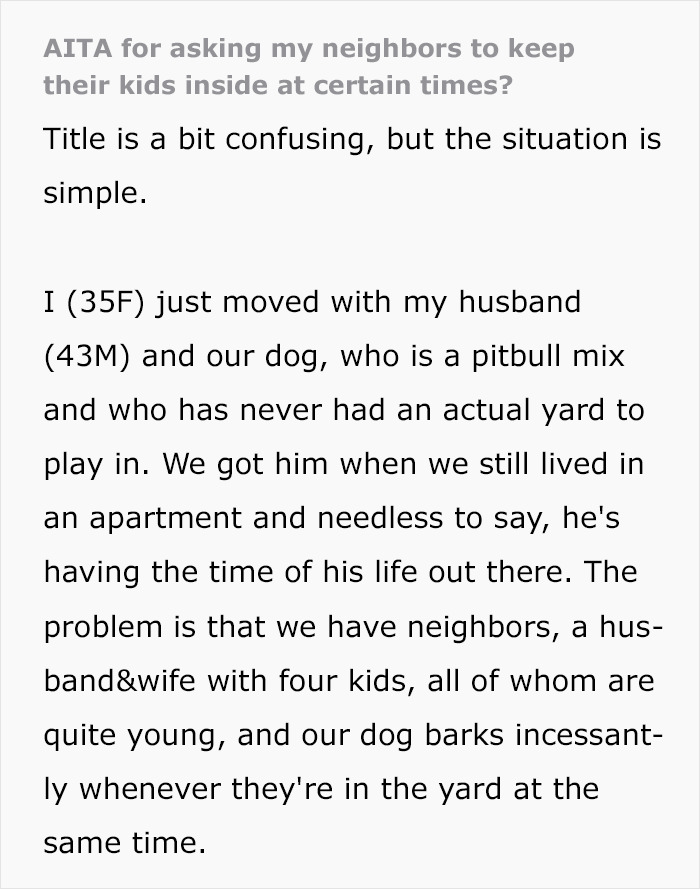
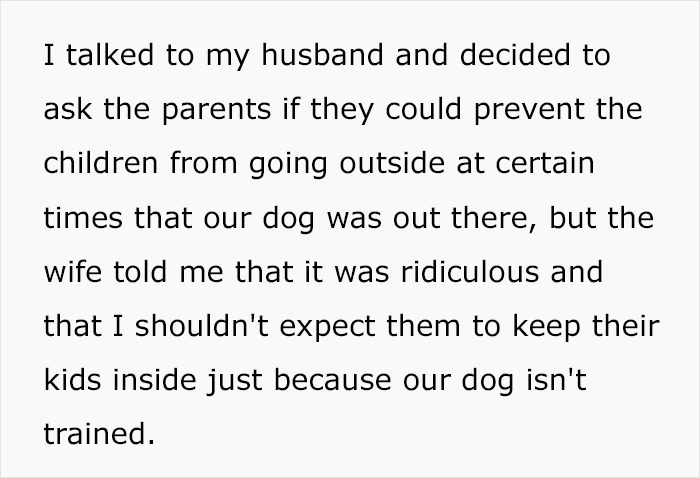
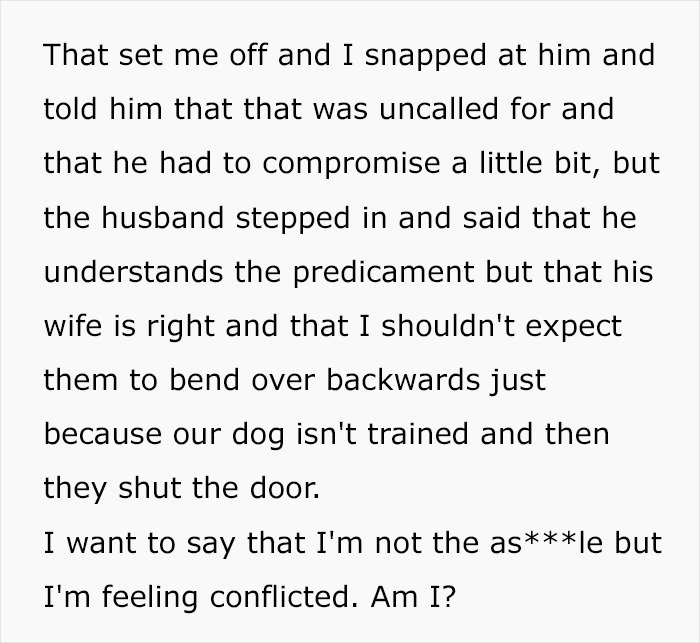



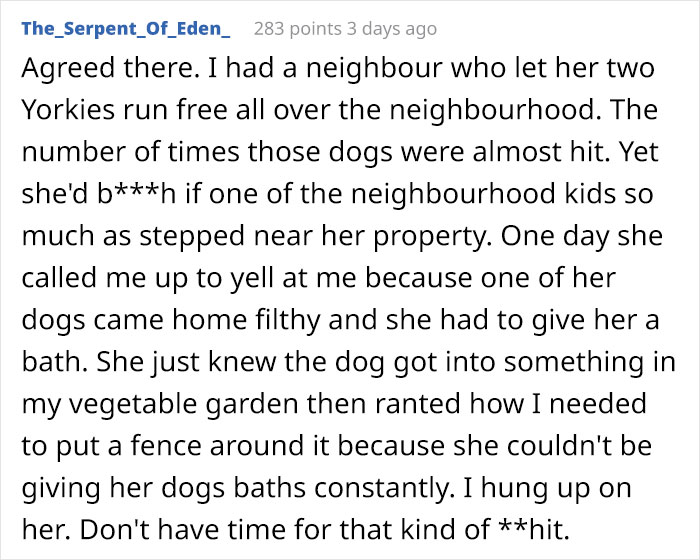

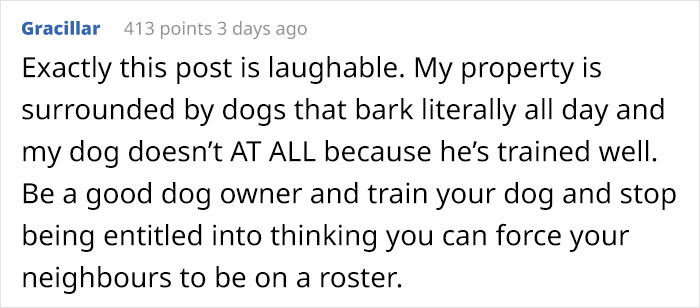
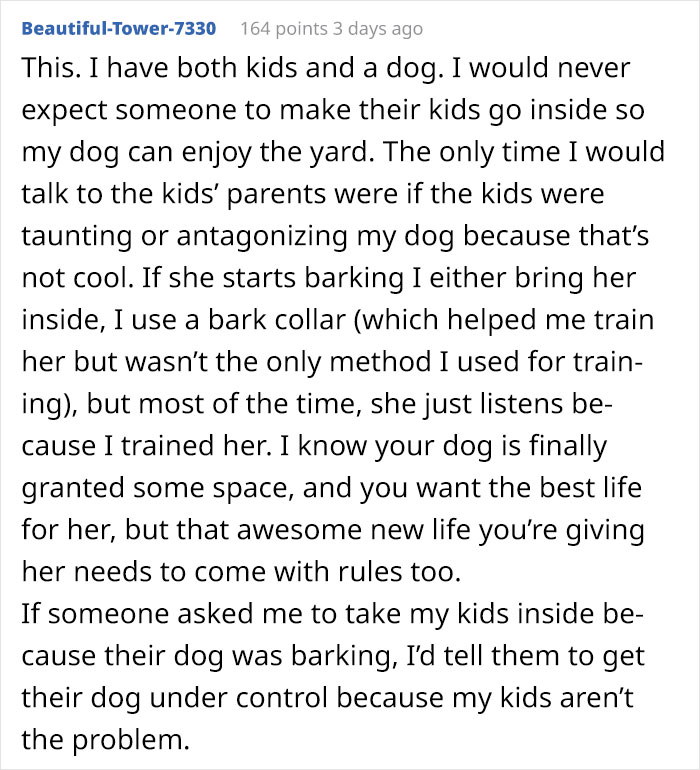


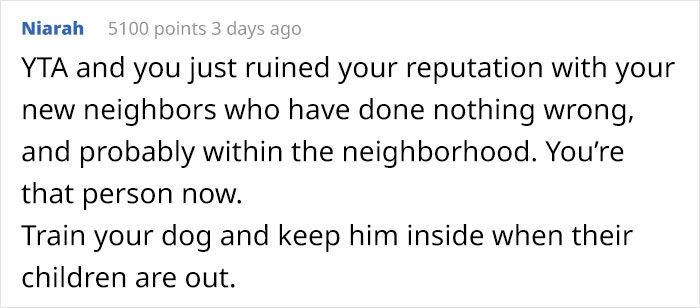



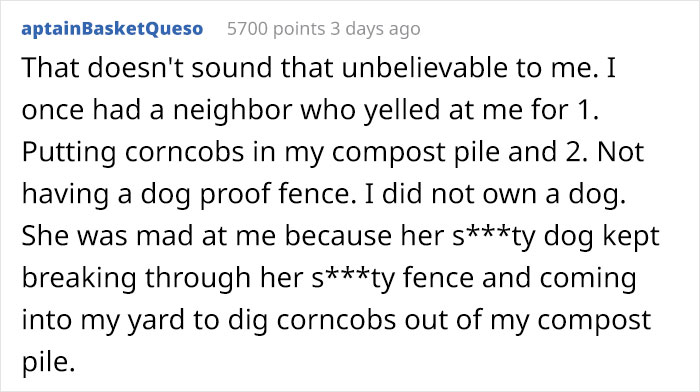














































139
82